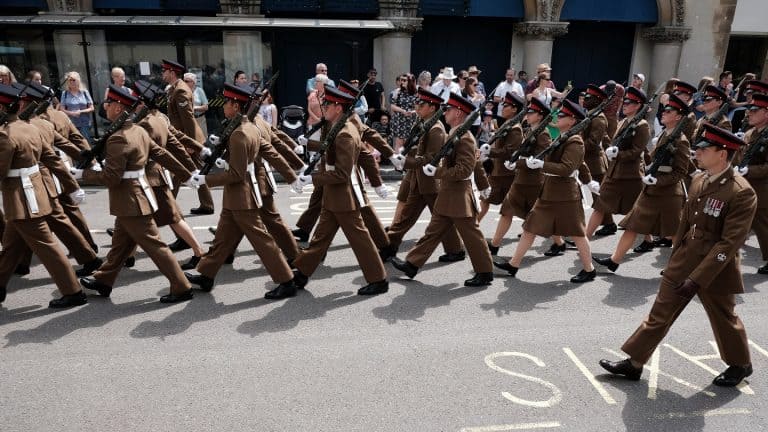Sexual assault in the Armed Forces
One of the core values which underpins a career in the Armed Forces is respect for others. This is something which recruits are taught as early as basic training. Yet unacceptable behaviour, including sexual assault, still happens in the Forces.
This blog discusses what amounts to sexual assault, and what you can do if you become the victim of such behaviour.
What is Sexual Assault?
Sexual assault, also known as indecent assault, is a crime and defined as an act of physical, psychological or emotional violation in the form of a sexual act, inflicted on someone without their consent (source: the Met Police website).
A victim of a sexual assault may be coerced or physically forced to engage in a sexual act against their will, or touched by another person without their consent. When they have been physically touched this can also amount to the crime of ‘Battery’.
Not all sexual assault involves violence or force. Even statements of a sexual nature can cause victims severe distress and make them fear for their own safety. Examples of this behaviour includes making sexual threats, lewd comments and/or gestures.
What should I do if I suffer a sexual assault?
You should promptly:
1. Report the incident to the Police (either the civilian or Royal Military Police)
2. Report to your Medical Officer or GP if you have been physically harmed
You may also want to raise a service complaint (see below).
Victims can find it hard to speak up and ask for help. This is often the case for service personnel, who may be concerned that they will be treated differently by their colleagues or worried that their careers may be effected.
However, if this behaviour is not stamped out early on, it can escalate and become worse, sometimes leading to further harassment, violence and/or rape.
In addition to the physical injuries, sexual assault can also have a devastating impact on your mental health and you may suffer from a number of conditions, like:
• Post-Traumatic Stress Disorder
• Anxiety
• Depression
What happens next?
The police should investigate the crime and the prosecution service will make a decision whether to charge the person who assaulted you. If they are charged, then this may lead to a Court Martial hearing or a hearing at a Crown Court.
You will have rights as a victim and complainant. If you do report the incident or incidents to the police you can expect:
• An officer to deal with your case – This is normally the first person to whom you disclose what happened to you. The officer will normally keep you informed about how the investigation is going.
• To give a statement – Your statement will cover the circumstances of the incident(s). The Police are likely to take statements from other individuals involved, this can include those who witnessed the incident or events leading to the incident.
• To give evidence at Court – This will involve you appearing as a witness in Court and giving evidence which relates to the incident. This is to assist the Court in gathering sufficient evidence to charge the person who has assaulted you.
Once the Trial has taken place at Court, you can normally expect a verdict of guilty or not guilty and sentencing of the person who has assaulted you.
Should I raise a service complaint?
In addition to complaining to the police, you may want to raise a service complaint about what you have experienced. This might be necessary where the police have decided not to prosecute the person who assaulted you, or where the prosecution has been unsuccessful.
Service complaints are also important for making sure that lessons are learnt from these events and you can ask as part of the remedy for your service complaint to ensure that proper training is given to your colleagues and/or chain of command. You can also ask that disciplinary action is taken against anyone who has assaulted you.
There are strict deadlines for service complaints, which should be made within three months of the latest incident you are complaining about. Just because the police are investigating does not mean you should delay raising a complaint. If there is an ongoing criminal investigation, the service complaint process will often be postponed until after the prosecution.
For further information on making a service complaint and the process please read here.
Support available to you
Some other support services are available, including:
• Welfare Office
• Chaplaincy services
• Medical centres
• Confidential helplines – for example Speak Out and Speak Safe
• The Survivors Trust (sexual assault and rape)
• The Royal British Legion
Can I also make a civil claim for compensation?
Sexual assault can give rise to a civil claim against the wrongdoer and/or their employer. For example, if you have been sexually assaulted by another service person, you will be able to bring a civil claim against them and potentially against the Ministry of Defence, which has a duty of care to you and can in some circumstances be responsible for the criminal acts of service personnel.
If you are successful in a civil claim, you can be compensated for:
1. The injury you have suffered, whether physical or psychological.
2. Any impact on your career, including loss of earnings, benefits and pension.
What are the time limits for a civil claim?
Civil claims normally have to be issued within three years of the first incident of assault. There are ways of extending time in exceptional circumstances, but you would need to take advice from a solicitor at an early stage.
Can I apply under the Criminal Injuries Compensation Scheme?
If the matter is being investigated by the police, once the initial investigations have concluded and / or there has been a criminal trial or court martial, victims of crime can apply for compensation to the Criminal Injuries Compensation Authority (CICA). You can do this in addition to making a civil claim for compensation.
In order to be eligible to make a claim under the Scheme the victim must:
• Make an application within two years of the incident which gave rise to a criminal injury
• Be either a member of the Armed Forces or an ‘accompanying dependant’; defined as:
o a spouse
o civil partner
o child, step-child or adopted child
Please access the scheme rules for further information here.
If you have suffered harm as a result of a criminal injury abroad, you may also have rights to compensation under the Criminal Injuries Overseas Compensation Scheme (CIOC)
Legal advice
Sexual assault can affect anyone, regardless of their gender, age and rank. Victims can find it hard to speak up and ask for help and there are many potential steps that they may have to take in order to achieve justice and/or compensation. It is crucial that you take advice from a solicitor at an early stage.
These types of cases are sensitive and difficult. It is important to be listened to, heard and believed and here at Bolt Burdon Kemp we pride ourselves in doing so. Our specialist team has represented many individuals who have suffered a sexual assault and we have seen the devastating impact it can have.










